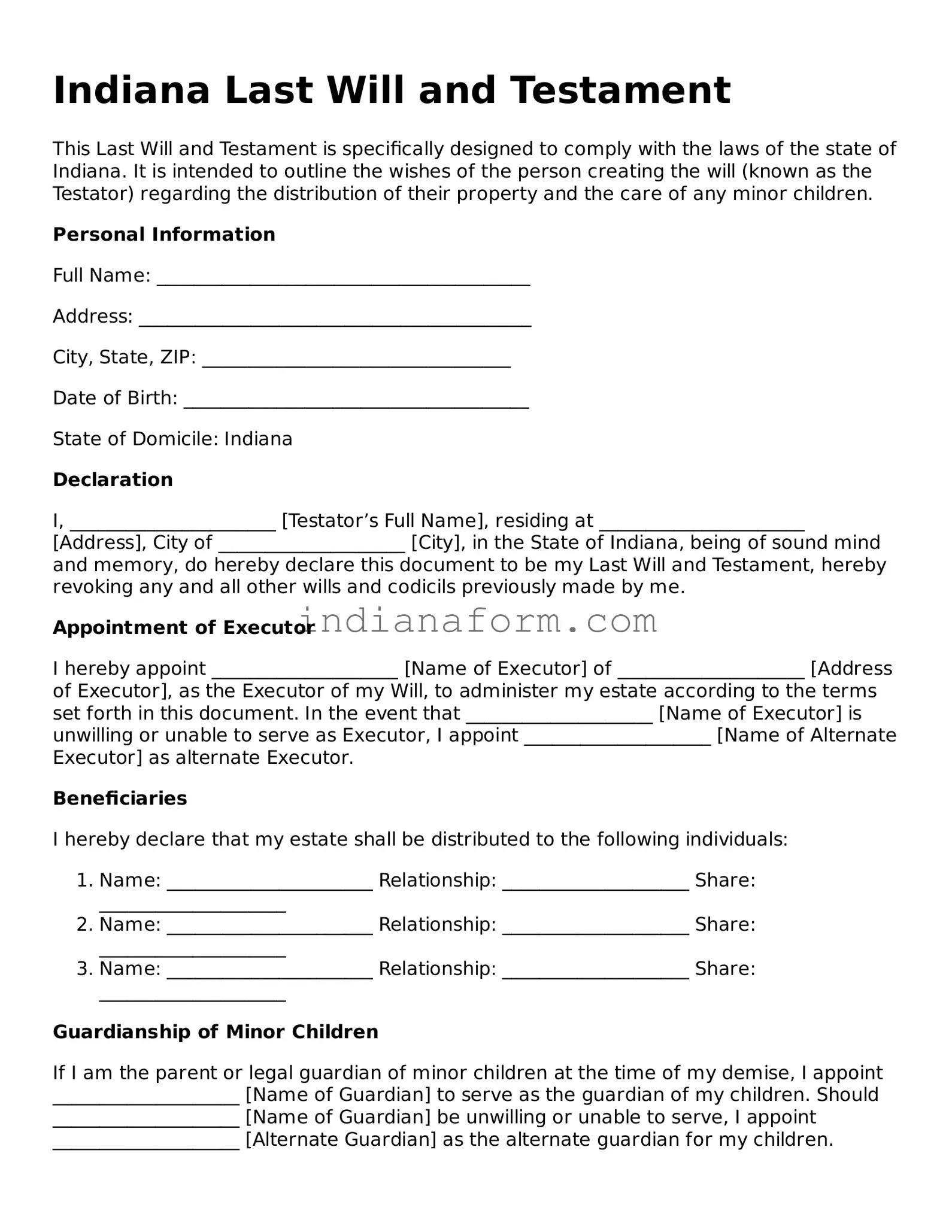Indiana Last Will and Testament
This Last Will and Testament is specifically designed to comply with the laws of the state of Indiana. It is intended to outline the wishes of the person creating the will (known as the Testator) regarding the distribution of their property and the care of any minor children.
Personal Information
Full Name: ________________________________________
Address: __________________________________________
City, State, ZIP: _________________________________
Date of Birth: _____________________________________
State of Domicile: Indiana
Declaration
I, ______________________ [Testator’s Full Name], residing at ______________________ [Address], City of ____________________ [City], in the State of Indiana, being of sound mind and memory, do hereby declare this document to be my Last Will and Testament, hereby revoking any and all other wills and codicils previously made by me.
Appointment of Executor
I hereby appoint ____________________ [Name of Executor] of ____________________ [Address of Executor], as the Executor of my Will, to administer my estate according to the terms set forth in this document. In the event that ____________________ [Name of Executor] is unwilling or unable to serve as Executor, I appoint ____________________ [Name of Alternate Executor] as alternate Executor.
Beneficiaries
I hereby declare that my estate shall be distributed to the following individuals:
- Name: ______________________ Relationship: ____________________ Share: ____________________
- Name: ______________________ Relationship: ____________________ Share: ____________________
- Name: ______________________ Relationship: ____________________ Share: ____________________
Guardianship of Minor Children
If I am the parent or legal guardian of minor children at the time of my demise, I appoint ____________________ [Name of Guardian] to serve as the guardian of my children. Should ____________________ [Name of Guardian] be unwilling or unable to serve, I appoint ____________________ [Alternate Guardian] as the alternate guardian for my children.
Special Bequests
I also wish to make the following special bequests:
- To ____________________ [Name], I bequeath ____________________ [Description of Property or Sum of Money].
- To ____________________ [Name], I bequeath ____________________ [Description of Property or Sum of Money].
- To ____________________ [Name], I bequeath ____________________ [Description of Property or Sum of Money].
Residual Estate
All the rest and residue of my estate, including real and personal property, not specifically bequeathed shall be distributed as follows:
- Name: ______________________ Relationship: ____________________ Share: ____________________
- Name: ______________________ Relationship: ____________________ Share: ____________________
Signatures
This Last Will and Testament must be signed in the presence of witnesses to be valid. Witnesses should not be beneficiaries of the will.
Date: ____________________
Signature of the Testator: ____________________
Printed Name: ____________________
Witness #1 Signature: ____________________
Printed Name: ____________________
Witness #2 Signature: ____________________
Printed Name: ____________________
Notarization
This document was notarized on ____________________ [Date], by ____________________ [Notary's Name], a notary public in and for the State of Indiana.

